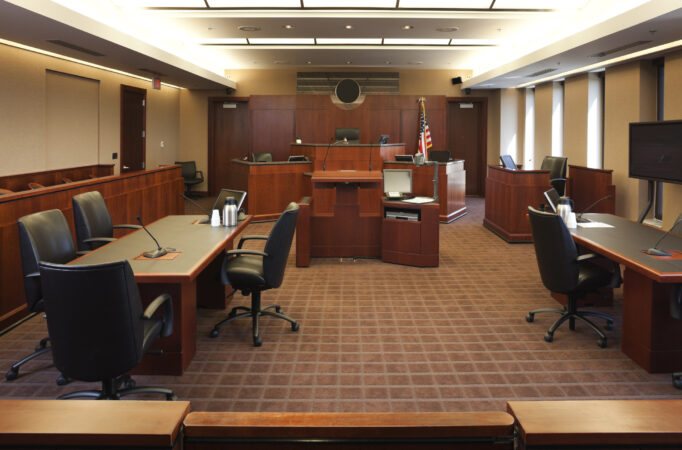Litigation: Latest Legal Blogs and News
No Headquarters, No Conduct, No Problem: U.S. Supreme Court Rules Corporations May Be Exposed to Jurisdiction Under State Registration Laws
In Mallory v. Norfolk Southern Railway Co., the Supreme Court of the United States (SCOTUS) overturned Pennsylvania’s Supreme Court, holding that a Pennsylvania law comports with the due process clause in requiring out-of-state companies that register to do business in the Commonwealth to agree to appear in Pennsylvania courts on “any cause of action” against them. Simply put, if you register your business entity in Pennsylvania, you accept personal jurisdiction in that state and can be sued there. This decision will reverberate across the country, as other states have similar laws or may enact similar laws in the future.
The SCOTUS opinion came down on June 27, 2023, causing quite a stir for in-house and outside counsels around the country. In a narrowly decided 5-4 opinion, Justice Neil Gorsuch compared the issue to a Norfolk Southern train’s derailment on February 3rd, 2023, in East Palestine, Ohio, suggesting that Norfolk’s argument against the Court’s ultimate decision could, in theory, shield the company from some state-court lawsuits. Further, Justice Gorsuch reasoned, companies consent to the potential liability “in exchange for the rights to exploit the local market and to receive the full range of benefits enjoyed by in-state corporations.”
In an eighteen-page dissent, Justice Barrett wrote that the majority’s decision in Mallory v. Norfolk Southern Railway “flies in the face” of seventy-five-year old precedent holding that the due process clause bars states from asserting personal jurisdiction over out-of-state companies based solely on business activities in the state. Justice Barrett contends that this ruling, while not eviscerating the traditional approach to personal jurisdiction (which looks to the defendant’s contacts with the state it is sued in), allows states to force consent to personal jurisdiction.
The decision has the potential to sharply curtail forum shopping by corporations hoping to find a more favorable jurisdiction. As it stands, companies registered in Pennsylvania can be sued in Pennsylvania for an injury or financial harm that occurred anywhere.
About Us
The litigation attorneys at Houston Harbaugh, P.C., are accomplished business trial lawyers, providing comprehensive support in litigation across a broad spectrum of matters throughout Pennsylvania, West Virginia, Ohio and other jurisdictions upon a special admission basis. Our clients are regional and national small, medium and large companies and individuals who seek well planned and aggressive, but cost effective litigation. We counsel, we budget, we have a deep bench, we act quickly when needed and we have experienced trial lawyers who know the courts and bench. We serve regularly as local counsel for some of the largest law firms in the country when they have matters in this region.

Henry M. Sneath - Practice Chair
Co-Chair of Houston Harbaugh’s Litigation Practice, and Chair of its Intellectual Property Practice, Henry Sneath is a trial attorney, mediator, arbitrator and Federal Court Approved Mediation Neutral and Special Master with 98 trial verdicts and extensive federal and state court trial experience in cases involving commercial disputes, breach of contract litigation, Artificial Intelligence (AI), intellectual property matters, patent, trademark and copyright infringement, trade secret misappropriation, DTSA claims, cyber security and data breach prevention, mitigation and litigation, employment and restrictive covenant litigation, probate trusts and estates litigation, construction claims, eminent domain, professional negligence lawsuits, pharmaceutical, products liability and catastrophic injury litigation, insurance coverage, and insurance bad faith claims. DTSALaw® Business Litigation. Pittsburgh Strong.®

Samuel H. Simon - Practice Chair
As co-chair of Houston Harbaugh’s Litigation Group, Sam focuses his practice on commercial/business litigation. Sam regularly represents clients in the construction, manufacturing, oil and gas, and wholesale/retail/ distribution industries, as well as individuals in matters such as:
- Construction litigation
- Environmental litigation
- Breach of contract disputes
- Oil and gas litigation
- Negligence
- Restrictive covenants (non-compete agreements)
- Civil rights
- Collections/creditors’ rights
- Lease disputes

